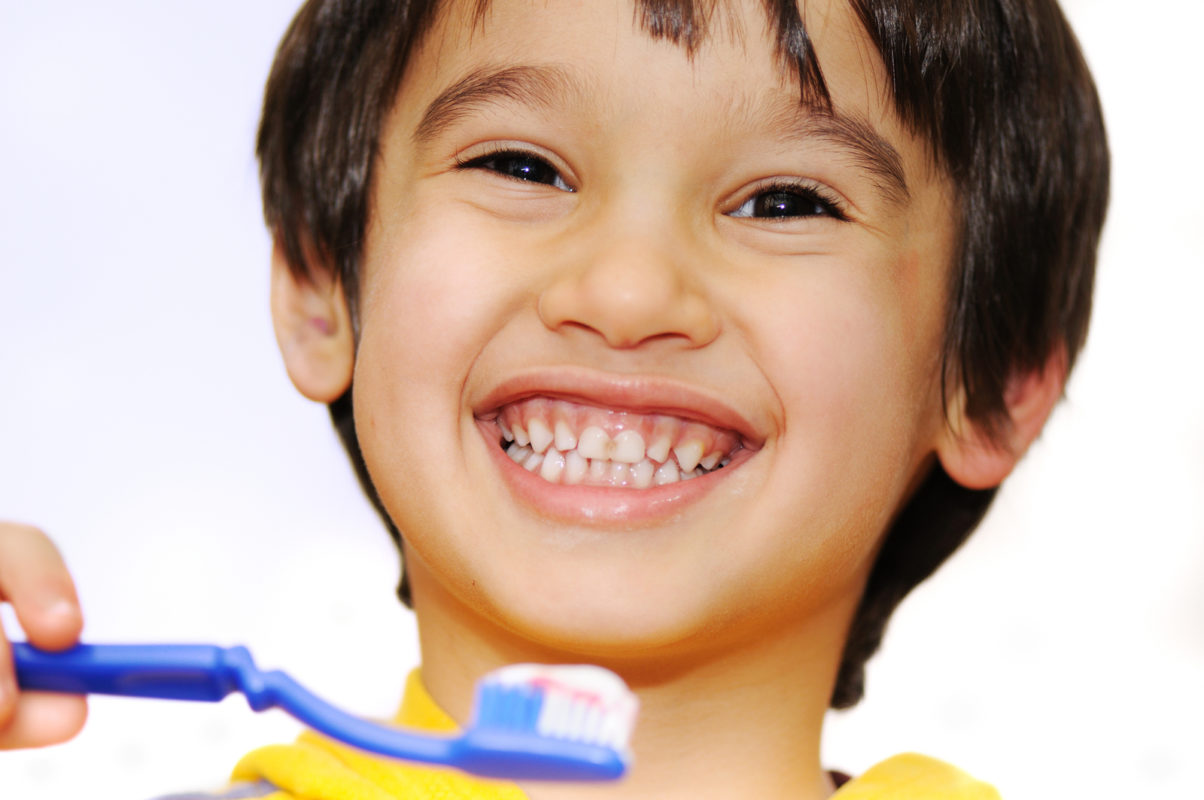While most parents eagerly await their children’s first teeth, the occurrence can cause concern. Here are the answers to some common dental health questions to reduce the risk of complications and help you protect your child’s oral health.
When Should Children Get Their First Dental Exam?
According to the American Academy of Pediatrics (AAP), the American Academy of Pediatric Dentistry (AAPD) and the American Dental Association (ADA), children should see a pediatric dentist once their very first teeth appear, or no later than their first birthdays. This will help you and the dentist monitor growth, and allow your child to get used to going to the dentist.
At What Age Can Children Begin Brushing Their Own Teeth?
To protect the health of your child’s teeth, you should continue brushing them until they are between eight and ten years of age. If you feel your child is ready to go it alone, you can allow him or her to brush without your help and then perform a little extra brushing afterword.
When Should Children Start Flossing?
Once your child’s teeth start coming in, you should watch them closely to see if they are touching each other. At the first sign of this, it’s a good idea to start flossing between them. For most children, this will occur around the age of four.
When Should Children Begin Using Fluoride Toothpaste?
A child is ready to start using fluoride toothpaste once he or she is able to spit.
Is it Normal for Adult Teeth to Appear before Baby Teeth Are Lost?
It’s quite common for six-year molars to start erupting before children lose their upper or lower front baby teeth. In the vast majority of case, these baby teeth will fall out soon after adult molars erupt.
Is it Normal for Baby Teeth to Be Lighter than Adult Teeth?
Adult teeth can appear darker when viewed next to baby teeth. This is completely normal and shouldn’t cause concern.
Should You Fix Cavities on Baby Teeth?
Since baby teeth act as space holders for permanent teeth, they shouldn’t be neglected. If decay is left untreated, a child can experience infection and pain. What’s more, if a baby tooth is lost before its ready, it can cause spacing issues that can lead to problems with adult teeth. For these reasons, it’s important to have your child’s baby teeth regularly examined by your local dentist, so he or she can identify any potential problems and repair them as soon as possible.
What Can You Do if a Baby Tooth Gets Knocked Out Prematurely?
If your child loses a baby tooth due to a fall or accident, there are some steps you can take to fix the problem. First, locate the tooth and rinse it with milk, while being careful not to touch the root with your fingers. Next, gently replace the tooth in the socket. Place sterile gauze over the area and have your child bite down. If possible, visit your dentist as soon as you can. If you aren’t able to reattach the tooth yourself, place it in a clean container of milk and get to your dentist as soon as possible. With timely action, you can get a baby tooth to reattach.



 Previous Article
Previous Article